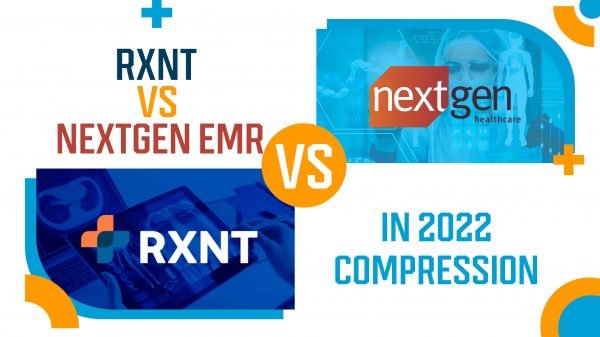In the intricate landscape of mental health and substance use disorders, a significant number of individuals face the challenging reality of experiencing both simultaneously. This intersection, known as dual diagnosis or co-occurring disorders, presents unique complexities that demand specialized approaches for effective treatment and support. Understanding the importance of dual diagnosis approaches is essential for providing comprehensive care that addresses the interconnected nature of these conditions. Moreover, the recognition of dual diagnosis not only sheds light on the intertwined challenges individuals face but also emphasizes the need for tailored interventions that acknowledge the multifaceted aspects of their well-being. By acknowledging the prevalence and impact of dual diagnosis, we can better advocate for resources, research, and policies aimed at improving outcomes and enhancing the quality of life for those affected.
Table of Contents
Understanding Dual Diagnosis:
Dual diagnosis refers to the coexistence of a mental health disorder and a substance use disorder within an individual. These conditions can interact in complex ways, exacerbating symptoms and complicating treatment outcomes. Common mental health disorders seen in conjunction with substance use include depression, anxiety disorders, bipolar disorder, and post-traumatic stress disorder (PTSD), among others. Substance use disorders may involve alcohol, illicit drugs, or prescription medications. The complexity of dual diagnosis arises from the interplay between these conditions, which often necessitates tailored treatment approaches to address both simultaneously. Moreover, the dynamic nature of dual diagnosis highlights the importance of ongoing assessment and personalized interventions that adapt to individuals’ changing needs and circumstances. Accessing specialized care at Dual Diagnosis Treatment Centers can provide individuals with comprehensive support and expertise tailored specifically to their dual diagnosis needs, further enhancing their chances of successful recovery.
Symptoms and Challenges:
Recognizing dual diagnosis can be challenging due to the overlapping symptoms of mental health and substance use disorders. Individuals may experience mood swings, changes in behavior, difficulties with impulse control, and impaired judgment. Additionally, substance use may be used as a coping mechanism to alleviate symptoms of mental illness, creating a cycle of dependence and exacerbating underlying conditions. The presence of dual diagnosis often leads to more severe symptoms, increased risk of relapse, and higher rates of hospitalization and suicide. Consequently, accurately diagnosing and effectively treating dual diagnosis requires a nuanced understanding of both mental health and substance use disorders. Furthermore, addressing the stigma and misconceptions surrounding dual diagnosis is crucial for promoting early intervention, reducing barriers to treatment, and fostering a supportive environment where individuals feel empowered to seek help without fear of judgment or discrimination.
Importance of Dual Diagnosis Approaches:
Dual diagnosis approaches are crucial for addressing the complex needs of individuals with co-occurring disorders. These approaches recognize that treating mental health and substance use disorders in isolation may not effectively address underlying issues or promote sustainable recovery. Instead, integrated treatment models that combine psychiatric care, therapy, and substance use interventions offer a holistic approach to addressing both conditions simultaneously. By addressing underlying factors contributing to both disorders, such as trauma, genetics, or environmental triggers, dual diagnosis approaches aim to break the cycle of addiction and improve mental health outcomes. This integrated approach acknowledges the interconnectedness of mental health and substance use, providing individuals with comprehensive support to address their diverse needs. Additionally, promoting collaboration between various healthcare providers, including psychiatrists, addiction specialists, primary care physicians, and social workers, can enhance the coordination of care and facilitate holistic treatment planning that considers all aspects of individuals’ well-being.
Treatment Strategies:
Effective treatment for dual diagnosis typically involves a combination of pharmacotherapy, psychotherapy, and behavioral interventions tailored to the individual’s unique needs. Medications may be prescribed to manage symptoms of mental illness and support recovery from substance use, such as antidepressants, mood stabilizers, or medications for addiction management. Psychotherapy, including cognitive-behavioral therapy (CBT), dialectical behavior therapy (DBT), and trauma-focused therapies, can help individuals develop coping skills, address underlying trauma, and modify maladaptive thought patterns and behaviors associated with both disorders. Moreover, behavioral interventions, such as contingency management and motivational interviewing, can assist individuals in making positive lifestyle changes and maintaining sobriety. Additionally, incorporating peer support groups, educational workshops, and vocational training programs into treatment plans can enhance social support, promote skill-building, and empower individuals to lead fulfilling lives in recovery. By offering a comprehensive range of treatment modalities, dual diagnosis approaches strive to meet individuals’ diverse needs and preferences, fostering a sense of autonomy, self-efficacy, and hope for the future. Accessing specialized care at mental health treatment programs can further augment the effectiveness of dual diagnosis interventions by providing a structured and supportive environment where individuals can focus on their recovery journey with expert guidance and resources.
Challenges and Considerations:
Despite the importance of dual diagnosis approaches, several challenges exist in effectively implementing integrated care models. These may include limited access to specialized treatment programs, stigma surrounding mental illness and substance use, and fragmented healthcare systems that hinder collaboration between mental health and addiction treatment providers. Additionally, addressing the diverse needs of individuals with dual diagnosis requires a personalized approach that considers cultural, socioeconomic, and environmental factors. Overcoming these challenges necessitates systemic changes, including increased funding for mental health and addiction services, enhanced training for healthcare professionals, and policy reforms to promote integrated care and reduce barriers to treatment. Moreover, addressing structural inequities and disparities in access to care is essential for ensuring that all individuals, regardless of background or circumstance, receive the support and resources they need to thrive. By advocating for equitable policies, promoting community-based initiatives, and fostering partnerships across sectors, we can create a more inclusive and responsive healthcare system that meets the needs of individuals with dual diagnosis and promotes health equity for all.
Conclusion:
Navigating the complex intersection of mental health and substance use requires a comprehensive understanding of dual diagnosis and the implementation of specialized approaches that address the unique needs of individuals with co-occurring disorders. By recognizing the importance of integrated care models, promoting collaboration among healthcare providers, and advocating for accessible and stigma-free treatment options, we can support individuals on their journey toward recovery and resilience. Embracing a holistic approach that addresses the interconnected nature of mental health and substance use is essential for promoting long-term wellness and enhancing quality of life for all. Through continued efforts to improve dual diagnosis interventions, raise awareness, and reduce barriers to treatment, we can create a more inclusive and supportive healthcare system that meets the diverse needs of individuals with co-occurring disorders. By prioritizing equity, empowerment, and collaboration, we can build a future where everyone has the opportunity to thrive, regardless of their mental health or substance use history.





